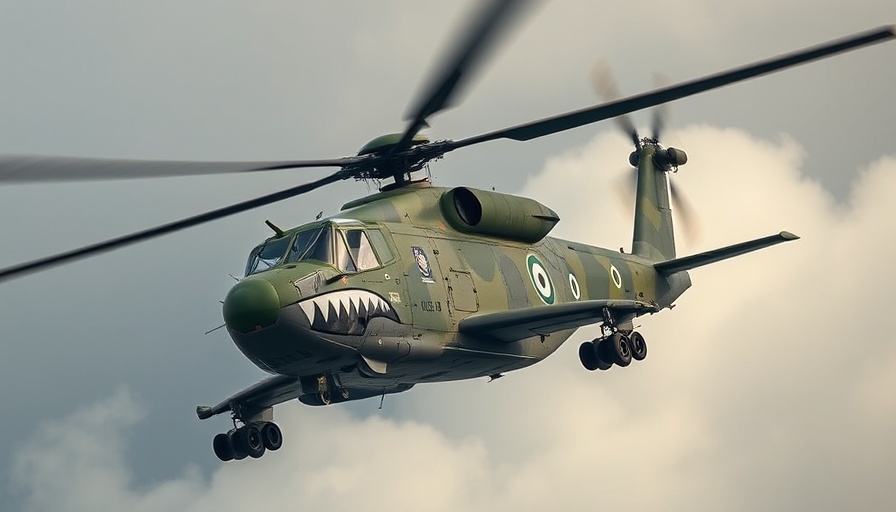
A Strategic Overhaul: Meeting the Challenges of Modern Warfare
The recent acquisition by the Ivorian Air Force, including four Soviet-type helicopters, forms part of a broader strategy to enhance its operational capabilities amid evolving security challenges. This upgrade is particularly crucial given the volatile geopolitical landscape in West Africa, marked by terrorism and ongoing conflicts in neighboring regions.
Decoding the Need for Upgraded Airpower
The drive to modernize the Ivorian Air Force can be seen as a direct response to national security threats, including terrorist activities emanating from extremist groups exploiting weaknesses in border security. By bolstering its aerial capabilities, Ivory Coast is taking proactive measures, ensuring not only domestic safety but also contributing to regional stability through potential peacekeeping roles.
Technology as a Cornerstone: Collaborations and Future Prospects
In addition to Russian equipment, the Ivorian military is in discussions to secure a consignment of advanced Chinese aircraft. Such partnerships reflect a growing trend among African nations seeking to diversify their military procurements beyond traditional Western suppliers. Meanwhile, continued cooperation with France remains pivotal, particularly in areas like training and equipment transfer as the French military presence in the country adjusts.
Contextualizing Current Developments in Governance and Security
The bid for improved military hardware aligns with ongoing efforts to reinforce governance and democratic processes in Ivory Coast. With presidential elections on the horizon, the current government is not only looking to strengthen its military capabilities but also to enhance public trust through bolstered national security measures. This dual approach may well serve to mitigate discontent and build a more stable political environment.
Broader Implications: Economic Growth Through Military Investment
Investing in military infrastructure prompts discussions on economic growth and poverty alleviation. A modern air force is essential not only for securing borders but can also foster a climate conducive to foreign investment. As industrialization progresses, stability and safety will play critical roles in attracting international business interests and enhancing trade under initiatives like the African Continental Free Trade Area (AfCFTA).
International Relations and the Ivorian Air Force
As Ivory Coast navigates its military and diplomatic relations, the evolving dynamics with China, the US, and France will significantly shape its future. By leveraging these partnerships, the Ivorian government can aim for a balanced foreign policy that not only enhances its defense posture but also promotes economic resilience and cultural diplomacy.
Engagements in Human Rights and Governance
A military upgrade also raises questions about governance, human rights, and civil-military relations in Africa. Politically, the population will need to remain vigilant as the government enhances its authority through military power. Therefore, transparency in military dealings and respect for human rights will be paramount as the country pivots toward enhancing defense capabilities while maintaining democratic ideals.
Concluding Thoughts on a Significant Shift
The modernization of Ivory Coast's air force is a multifaceted development deeply intertwined with regional security, economic growth, and governance issues. As the nation enhances its military prowess, it will be interesting to observe how these changes influence political stability and economic strategies moving forward. It is critical for citizens and stakeholders to remain engaged, advocating for approaches that prioritize human rights even in the face of bolstered military strength.
 Add Row
Add Row  Add
Add 




Write A Comment